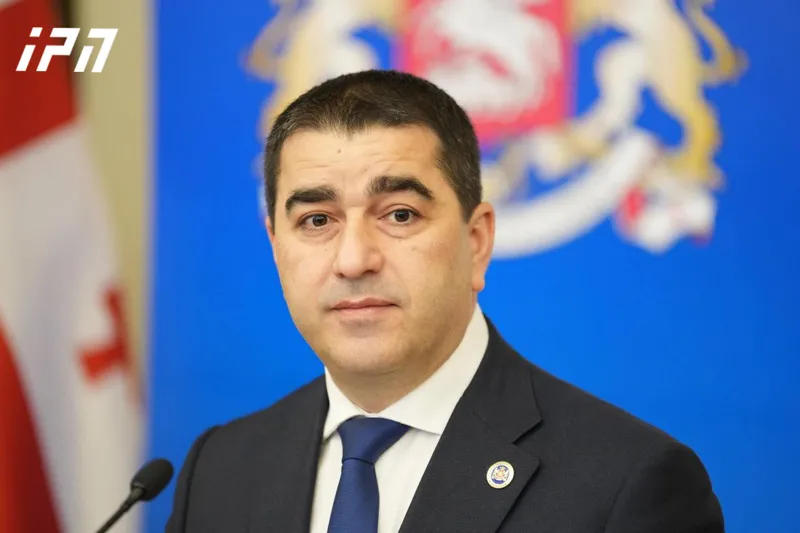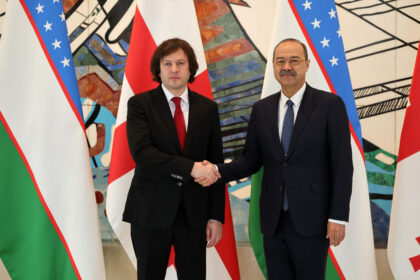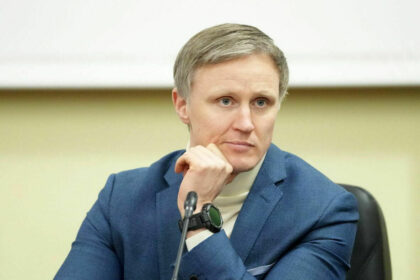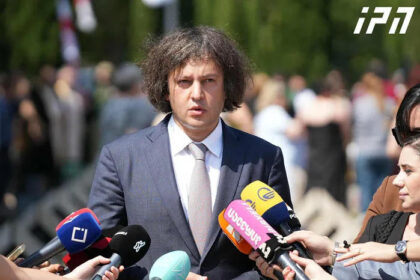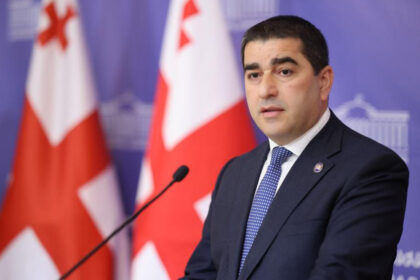**Georgia’s Speaker of Parliament Slams Lithuanian MEP for ‘Fascist’ Comments**
In a scathing social media post, the Speaker of the Parliament of Georgia, Shalva Papuashvili, has accused a Lithuanian Member of the European Parliament (MEP), Rasa Juknevičienė, of making statements that have come “very close to fascist statements”. The exchange is just the latest in a series of escalating tensions between EU member states.
According to Papuashvili’s post, Juknevičienė had made comments at a meeting of the European People’s Party (EPP) that suggested Georgian leaders are under Kremlin control. Specifically, Juknevičienė stated that the Georgian regime is an example of “internal seizure of the state by the Kremlin”, implying that the country’s leadership is somehow beholden to Moscow.
Papuashvili took issue with these comments, suggesting that they were not only inaccurate but also reflective of a broader trend towards xenophobia and intolerance within EU institutions. He noted that Juknevičienė had used language reminiscent of hate speech, warning that if this kind of rhetoric continues unchecked, it may one day be directed at other nations – including Georgia.
**A Warning to Brussels**
Papuashvili’s comments are significant not just because they reflect a growing frustration with EU policies and attitudes towards member states like Georgia. They also highlight the need for greater nuance and understanding within European institutions when dealing with sensitive issues like state sovereignty and democracy.
The tensions between Papuashvili and Juknevičienė reflect deeper divisions within Europe, where different countries have competing priorities and values. The EU’s response to these differences – or lack thereof – will be crucial in shaping the continent’s future.
As Papuashvili noted, it is time for “common sense” to prevail in Brussels, to halt a trend that undermines democracy and human dignity. His words are a warning to European leaders to take a more balanced approach when dealing with sensitive issues like state sovereignty and national identity.
**What does this mean for Europe?**
The exchange between Papuashvili and Juknevičienė highlights the need for greater understanding and nuance within EU institutions, particularly when it comes to sensitive issues like state sovereignty and democracy. It also underscores the importance of critical thinking and analysis in shaping European policies.
As tensions continue to rise, Europeans will be watching closely to see how their leaders respond to these challenges. Will Brussels heed Papuashvili’s warning and take steps towards greater understanding? Or will these divisions continue to escalate?
Read More @ www.interpressnews.ge




